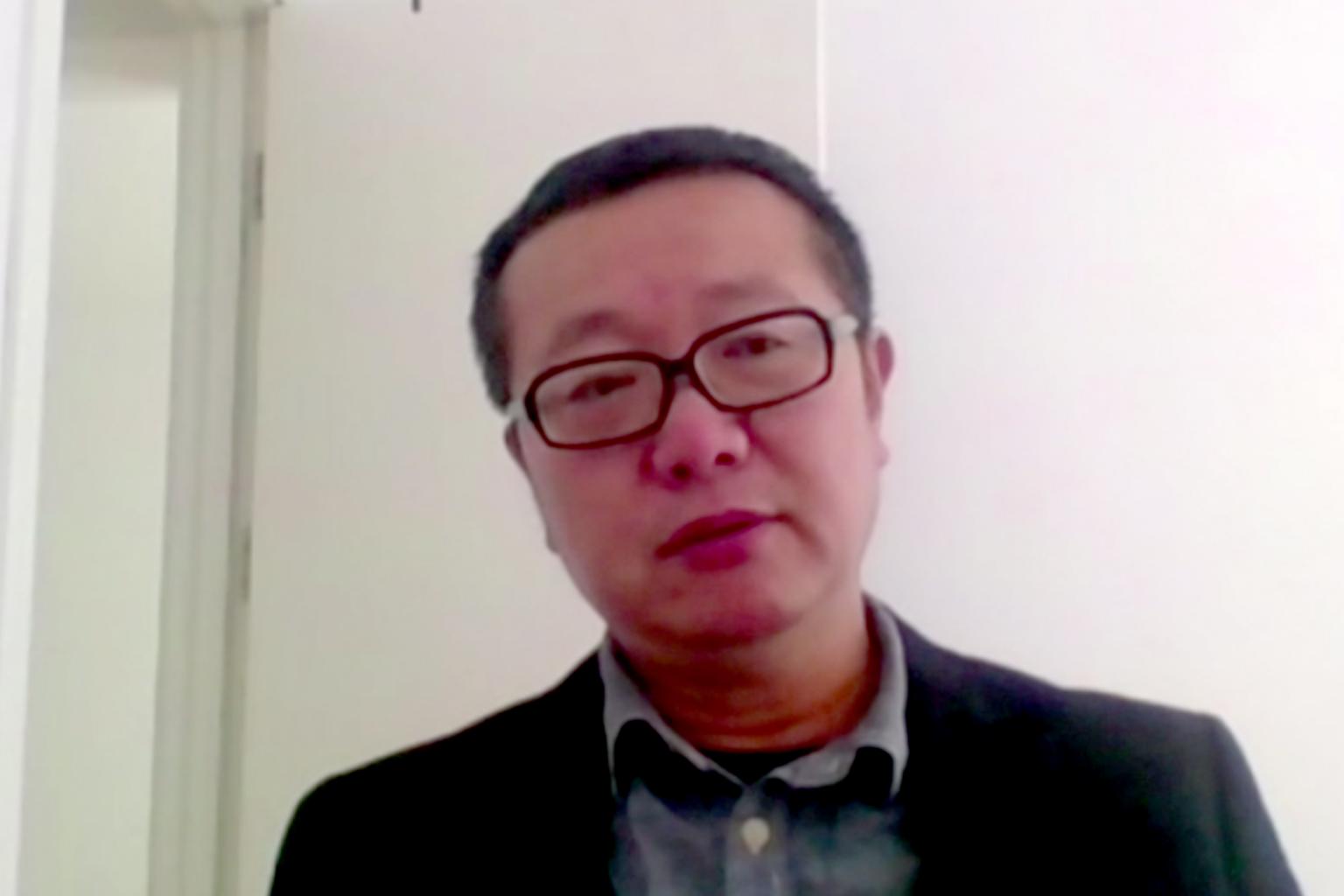Singapore Writers Festival: If you think Covid-19 is bad, wait till aliens show up, says Liu Cixin
Sign up now: Get ST's newsletters delivered to your inbox

Author Liu Cixin in a virtual dialogue at the Singapore Writers Festival.
PHOTO: SINGAPORE WRITERS FESTIVAL
Follow topic:
SINGAPORE - The coronavirus pandemic has shown us how susceptible our future is to disruption and how more such disruptions are likely to occur, up to and including alien invasions, said pioneer Chinese science fiction writer Liu Cixin.
"Aliens are not an unrealistic concern," said Liu, 57. "It is as realistic as the coronavirus...We could encounter aliens in 10,000 years' time, or they could appear tomorrow morning. And when they do, all the problems we face now will pale in comparison.
"The pandemic was not that unexpected - we have had many pandemics throughout history - but it reminds us that our future could be full of truly unexpected and unprecedented developments, including alien encounters.
"We need to prepare for these - philosophically, politically, economically - and I don't think we are adequately prepared. Science fiction imagines and explores such futuristic scenarios and helps us maintain an open mind towards them."
He was speaking in Mandarin on Saturday (Oct 31), to moderator Teoh Hee La in a live virtual dialogue during the Singapore Writers Festival.
The festival, organised by the National Arts Council, runs until Sunday (Nov 8) in its first fully digital edition with more than 200 programmes.
Liu is arguably the biggest name in Chinese science fiction today, thanks to his epic trilogy Remembrance Of Earth's Past, a series of immense scope that stretches far into space and from the present era to 17 billion years from the beginning of time.
He won the 2015 Hugo Award for The Three-Body Problem, the first instalment of the trilogy, and is also a nine-time winner of the Galaxy Award, China's top literary sci-fi prize.
Liu, who was a computer engineer before his writing career took off, said the idea for The Three-Body Problem grew "like a plant, slowly over time".
He spoke of how he is often confronted by the tiny scope of humankind's existence, compared to the enormity of the cosmos.
"It is like living in a huge city with skyscrapers and parks, but knowing only a basement storeroom," he said. "That is the status of humankind in the universe.
"We know that in this lifetime we cannot leave the storeroom, but we can use our imagination to explore the city above. Science fiction allows us to do this."
Among the questions readers asked was whether The Wandering Earth, Liu's novella which was made into a blockbuster film in 2019, was a viable scenario. In it, Earth has to move away from an expanding sun towards the Alpha Centauri system using enormous planetary thrusters, or Earth Engines.
Liu said that in terms of physics, it was possible, but that the amount of energy needed to move the Earth exceeds what existing technology is capable of generating.
Furthermore, he added, the surface of the Earth is quite thin and it is likely that such activity might cause it to disintegrate.
The Wandering Earth, hailed as China's first mainstream sci-fi film, was one of the country's highest-grossing movies of all time.
Liu's work has been garnering cinematic interest abroad as well, with Netflix announcing in September that it was adapting The Three-Body Problem into a series helmed by Game Of Thrones show runners David Benioff and D.B. Weiss.
The adaptation has since run into controversy, after the resurfacing of comments Liu made in a New Yorker article last year about China's re-education camps for the Uighur minority in Xinjiang.
Liu had defended the camps, which the United States government and human rights groups have criticised. Five Republican senators called upon Netflix to boycott Liu.
Liu did not address this issue during the dialogue, though in response to a question about the politics of his fiction, he said he had little interest in using his work for political commentary.
"I'm just a sci-fi fan who became a sci-fi author," he said. "I have no interest in using science fiction to critique current affairs. In my fiction, space is space and aliens are aliens.
"A lot of science fiction now engages in sociopolitical commentary. Among their number are many fine works which I respect, but I'm not that kind of author. I am more of a classic sci-fi author."
Traditional science fiction does not seek external meaning, he said, distinguishing it from dystopian works such as George Orwell's 1984, Aldous Huxley's Brave New World and Yevgeny Zamyatin's We.
"That said, your work doesn't belong to you, it belongs to the readers and they can find whatever they like in it."
-
BOOK IT/LIU CIXIN: THE POSSIBILITIES OF SCIENCE AND IMAGINATION
-
WHERE: Sistic Live
WHEN: Available on video-on-demand from Wednesday until Sunday
ADMISSION: Festival pass, $20 from Sistic
Books by Liu and other speakers are available at the online festival bookstore at swfbooks.com. For more details, go to this website.

